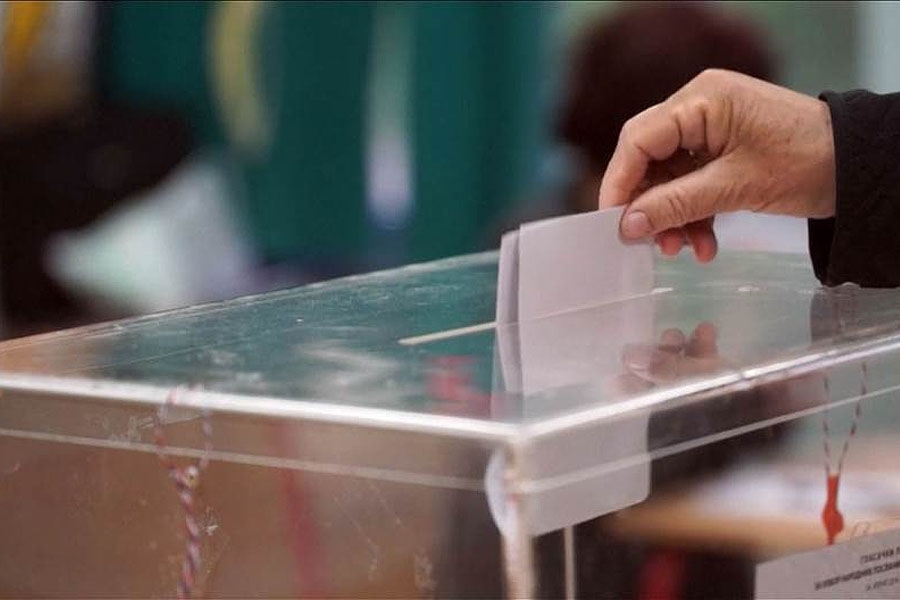Citizens of Great Britain, Germany, and France see artificial intelligence and deepfaking technology as a significant threat to the elections this year and next, according to a survey.

Citizens of Great Britain, Germany, and France see artificial intelligence and deepfaking technology as a significant threat to the elections this year and next, according to a survey.

A significant majority of citizens in France, Germany, and Great Britain fear the possible influence of artificial intelligence and deep fake technology on the upcoming elections, according to a YouGov survey.
While many respondents expressed a lack of understanding of these tools, more than 70 percent of citizens in the UK and Germany who understand AI and deep spoofing technology say they are concerned about the threat they could pose after the next election and during election campaigns.
In France, 57 percent of respondents share this opinion.
The survey also reveals that citizens feel a deep discomfort with the way new technologies affect democracy.
They are also bothered by illegal profiling based on personal data.
In the UK, Germany, and France, more people believe that social media companies harm democracy than strengthen it.
While 33 percent of German and 44 percent of French respondents believe that social media companies hurt democracy, only 18 percent, and 14 percent, respectively, believe that their impact is positive.
"Users are increasingly aware of negative actors and practices. They recognize that organized cyber groups are trying to orchestrate defamation campaigns through organized networks of social bots and trolls," said Daniel Barredo, a public opinion and media researcher at the University of Malaga in Spain, commenting on the research results.
The development of artificial intelligence technology, which is already widespread, enables a broader range of content creation as well, potentially increasing the spread of disinformation.
The research was carried out on the eve of crucial elections in the EU and worldwide, which will be held from this October until the end of 2024, which is already called the "Year of Democracy."
Sixty-five elections have already been scheduled in countries where more than a quarter of the population lives.
Among them are India, Indonesia, Mexico, South Korea, Taiwan, Great Britain, the USA, Serbia, and the elections for the European Parliament follow.
The elections for the European Parliament will determine the direction of the policy that the next European Commission will lead.
The research was conducted just as the EU Digital Services Act came into force, designed to curb the harmful business model of big tech companies that have more than 45 million monthly active users in the EU.
Respondents were also asked whether they have control over how social media companies use their personal information.
The findings are devastating - 64 percent of respondents in France and 63 percent in Germany said they had no control, while in the UK, that number rose to 70 percent.
In the UK, the Competition and Markets Authoritys (CMA) study of online platforms and the digital advertising market shows that there are many barriers to consumers being able to exercise control over their data, such as default settings and dark patterns in the way we present privacy options and complex terms and conditions that can often run to over 10,000 words.
But a vast number of users want control and choice.
Thus, 88 percent of respondents in the UK believe it is essential for social media companies to allow users to exercise their right to object to using their data for advertising.
In France, 81 percent of respondents believe this, and in Germany, 75 percent.
More than 50 civil society groups under the banner of the People vs Big Tech network in Europe demand the implementation of these rules.
Also, the global coalition is putting direct pressure on companies to publish their election action plans.
The research was commissioned by the philanthropic organization Luminate, founded by Pam and Pierre Omidyar, former chairman of the board of directors of the online sales platform eBay.
"In the last decade, big tech companies have launched an all-out assault on our data, fueling todays generative artificial intelligence boom. They never had our consent because they never gave us meaningful choice or real control," says Luminates director of campaigns and media, Alafia Zojab.
With a sample size of 1,008 French, 2,067 German, and 2,156 British citizens, the survey considered different political backgrounds, regions, genders, and age groups.
Pollster Daniel Barredo estimated that the results of the survey show that users have a deep understanding of the impact of social media on democracy.
"It seems that users are no longer as naive as they once were," Barredo concluded.
Politics is just one branch of industry that has been shaken up by artificial intelligence.
The artificially generated content in political campaigns is already causing problems for candidates and voters and could greatly complicate the fight against fake news and disinformation.
After US President Joseph Biden officially launched his re-election campaign in April of this year, the opposing Republican Party responded with a video criticizing Biden using photos made entirely by artificial intelligence technology.
It could be a turning point in political campaigns since it was the first time that photos made exclusively with the help of AI (artificial intelligence) were used.
A few months ago, Pink TV broadcast a series of video clips in which the statements of opposition politicians Marinika Tepi?, Vuk Jeremic, and Dragan ?ilas were fabricated with the help of artificial intelligence, with the remark that it was only a joke and satire.
In all societies there are issues that are rather being skipped. Certain...
The neoliberal path, started in 2001, has led to especially bad results in Serbi...
For centuries, the region was subsumed within the Ottoman and Hungarian Empires,...
"Serbia has returned to the systemic and anti-systemic position of the political...
In reality, Serbia is closer than ever to NATO. In the course of the last five y...